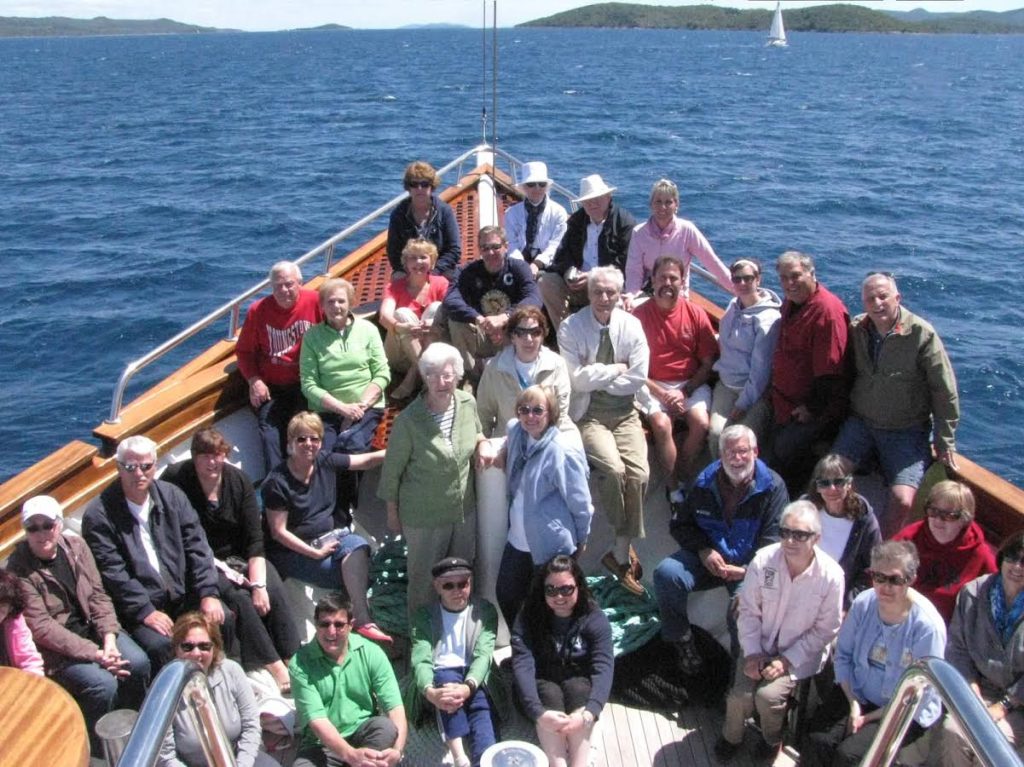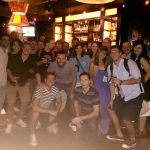The wider Croatian family is one of the most diverse on the planet, located in almost every corner of the world. Many people of Croatian origin have only a tenuous connection to their roots of the country their ancestors emigrated from generations and centuries ago.
And many are curious about their roots. Meet Robert Jerin, one of the nicest guys I have met in that wider Croatian family, and a man who has done perhaps more than anyone to connect people with their Croatian heritage and roots, through a combination of heritage tours, a Croatian genealogy guide, as well as an excellent Facebook group, Croatian Heritage and Genealogy.
I met Robert Jerin a couple of years ago for a cold one in Zagreb during one of his heritage tours. We have kept in touch, and I am grateful for his time in taking part in this email interview.
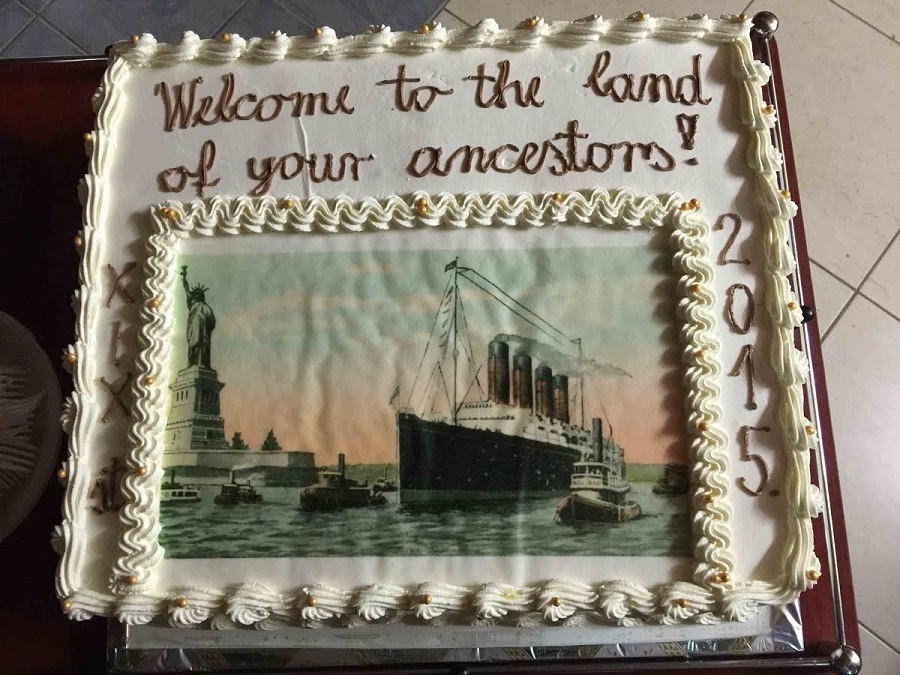
1. You have been running the popular Croatian Heritage and Genealogy Facebook group for several years now. Tell us firstly about your Croatian connection, and why did you decide to start the group?
My connection to Croatia is through my maternal grandparents, who came from the Karlovac/Ozalj area of Croatia. During my growing up years, I spent a great deal of time with them on their farm in Pennsylvania. My mother enrolled me at 6 months old in the Croatian Fraternal Union. For many years I paid little attention to the CFU Croatian newspaper but sometime around 1985 I began to read historical articles. Just before the Homeland War, I sought my Grandparents’ birth records, visiting the old Yugoslav Consulate in Cleveland. During that visit, the men standing around kept a watchful eye on me, little did I know that Cleveland was a hotbed for Croatian nationalists.
Then when the Homeland War broke out I emersed myself in all things Croatian: enrolling my children in a Croatian Tamburica group, helping out at our Croatian Heritage Museum in Cleveland, packing humanitarian containers going to Croatia and becoming active in a local Croatian Newspaper, the Croatian Voice. Our family sponsored war orphans in Croatia and we sponsored Croatian War Refugees coming to America. Our first visit was in 1997, which is hard to describe, as I walked between my ancestral villages. Since that time we have been back to Croatia nearly every year since 2005 taking over 700 people on Heritage Tours, where our goal is to connect them with their ancestral culture and in many cases help them find family.
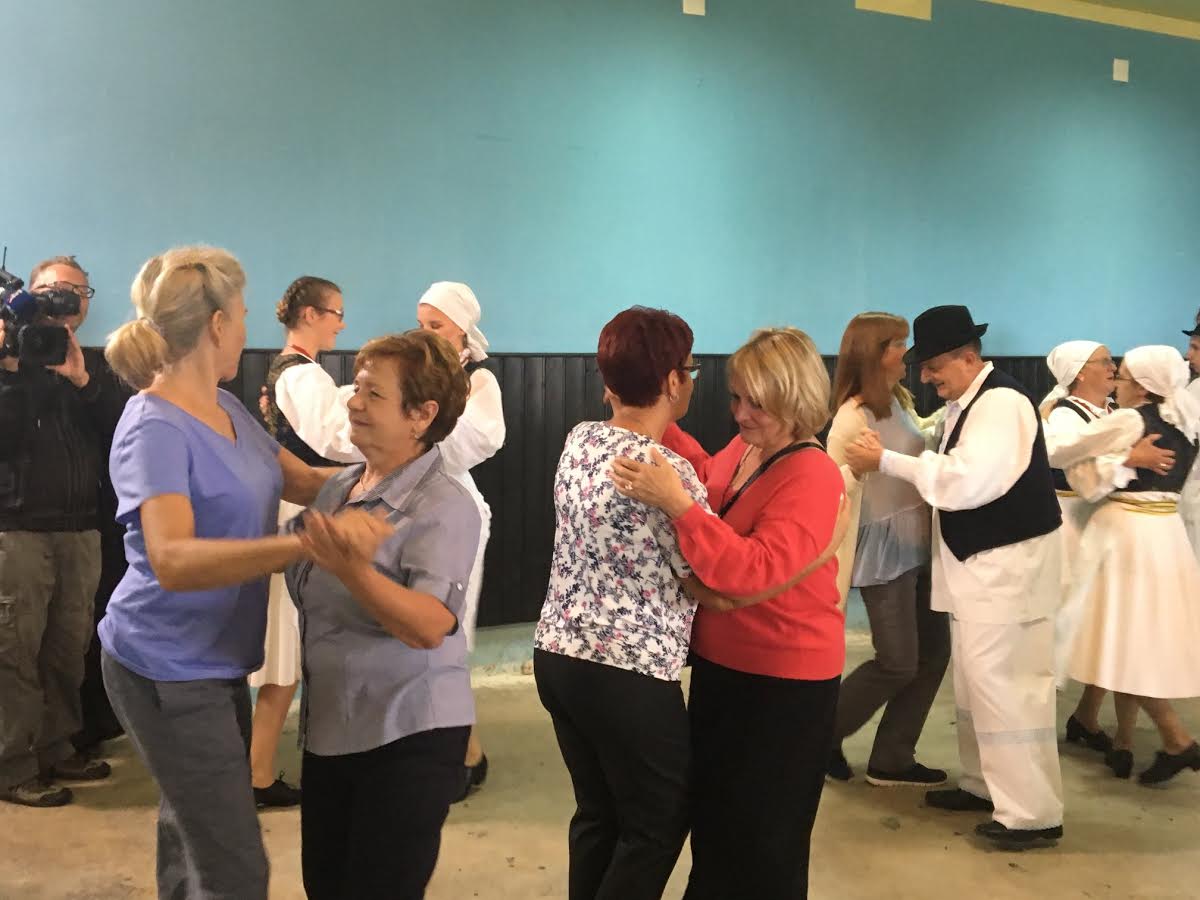
(Bonding with the locals in Gornje Bukovlje)
2. You also have various services for people trying to trace their Croatian heritage. Tell us about those.
The past 30 years have been a learning and sharing experience. As I delved into Croatian genealogy, I found I was able to help others, first on the old Croatian Ancestry forums and later on Facebook. Nowadays I offer 1 or 2 Heritage Tours to Croatia, Croatian Genealogy Seminars in various cities in the US, a Croatian Genealogy Handbook which I sell online in PDF format, and can offer genealogy services to many people gathering info to help them build a family tree.
Interestingly each of these came about from answering questions. First, someone suggested I do a seminar for the group, then someone suggested I take them to Croatia.
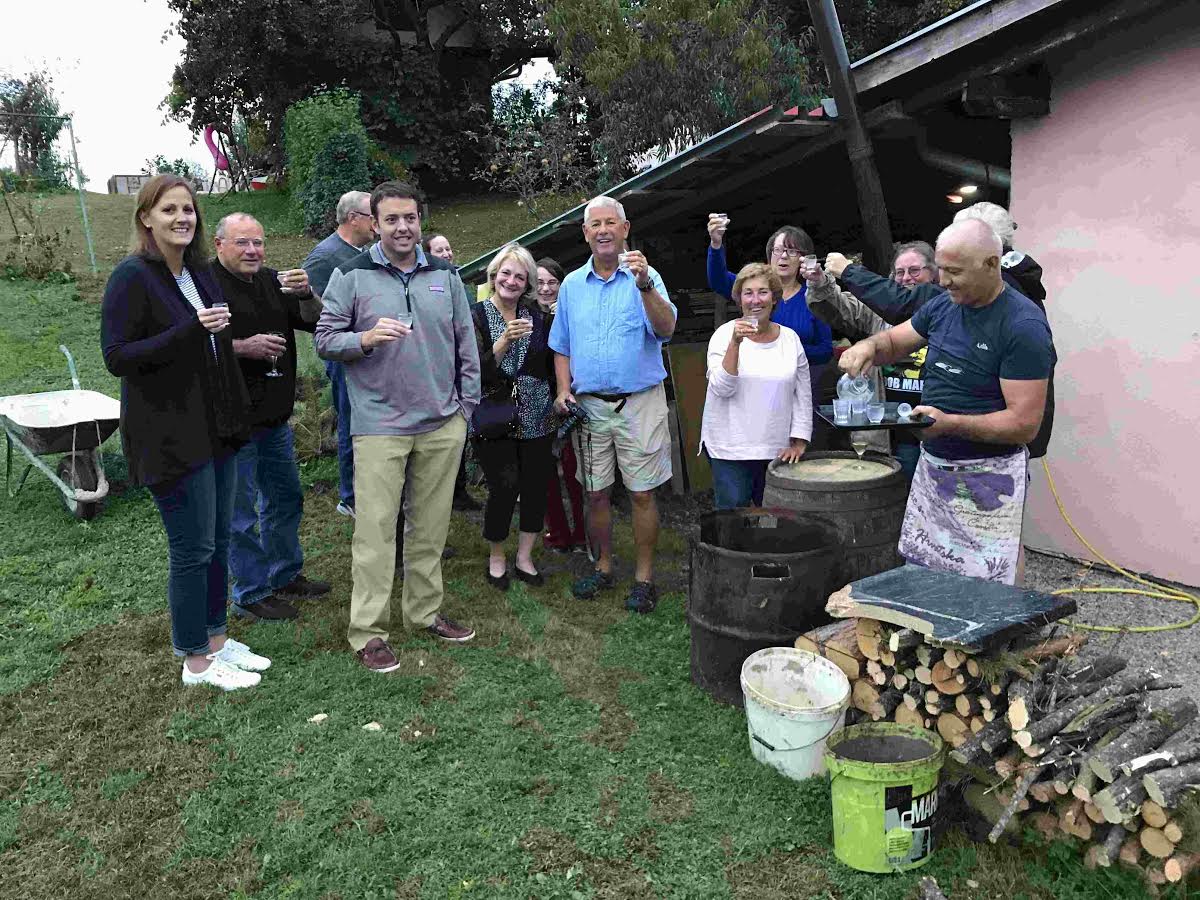
(Rakija stop at Plitvice Lakes with the Rubcic family)
3. Heritage tours must be incredibly uplifting experiences, as you bring people to the Croatian villages and homes of their ancestors. What does a typical tour look like?
Ah yes, the tours are very special. I still recall our first Heritage Tour in 2005. I had no idea how the tour would roll out, but as we went along people began to bring paperwork for their ancestors in America. We connected several people on that tour with their ancestral villages. And we were interviewed by Dobro Jutro Hrvatska during our visit to the State Archive. Since then we have been interviewed in print media, TV and radio.
Our typical tour includes famous places that people have heard about and think they need to see, such as Dubrovnik, Split, the common tourist places. But we try to introduce people places off the beaten path such as Smiljan the birthplace of Nikola Tesla, Lekenik, the Croatian Parliament, the famous but defunct resort of Kupari, the Lippizaner Stud farm at Djakovo, the Church of the Croatian Martyrs in Udbina, the Homeland War Cemetery in Vukovar, several castles including ones at Ozalj, Knin, Varazdin, Velike Tabor and Trakoscan, ethno selos at Trg/Ozalj, Kumrovec, Pakovo selo near Drnis, the pilgrimage villages of Marija Bistrica and Medjugorje, and one of three places in Croatia where Fiddler on the Roof was filmed, backroads in Dalmatinska Zagorje and a place we visit yearly the non-touristic village of Gornje Bukovlje where the local Ladies Club treats us to a day of music, dancing, eating and drinking.
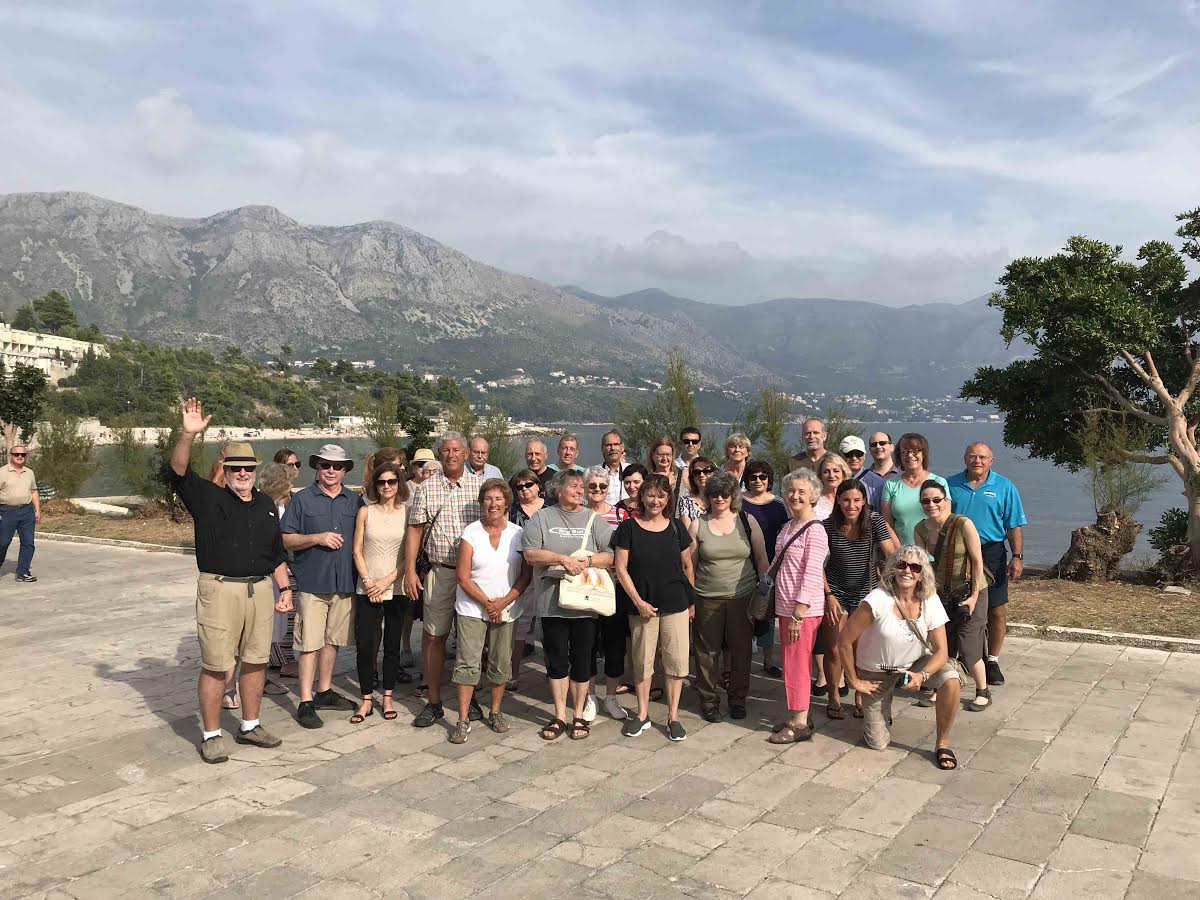
I emphasize to people that this place is as close as they will come to the Croatia of their ancestor’s day. We will even make surprise visits to ancestral villages of someone in our tour group if we are close. We set aside free time and encourage people to visit their ancestral villages, which we can help plan. And for those who want to do research, we have time planned on each tours at the State Archive in Zagreb. And I always seek out a place where we can enjoy traditional music, customs and food, such as Sarma. The tours bring out emotional responses from people.
The last several years we have added a week-long cruise on the Adriatic, employing small family-owned ships. These small ships are a great way to see the Croatian scenery, as you have a 180-degree view. We sail every morning stopping for lunch and a swim and then dock in the late afternoon in a historic port where we spend the night. Carrying about 38 passengers, breakfast and lunch service, a bar, a hot tube we reserve the entire boat for our group.
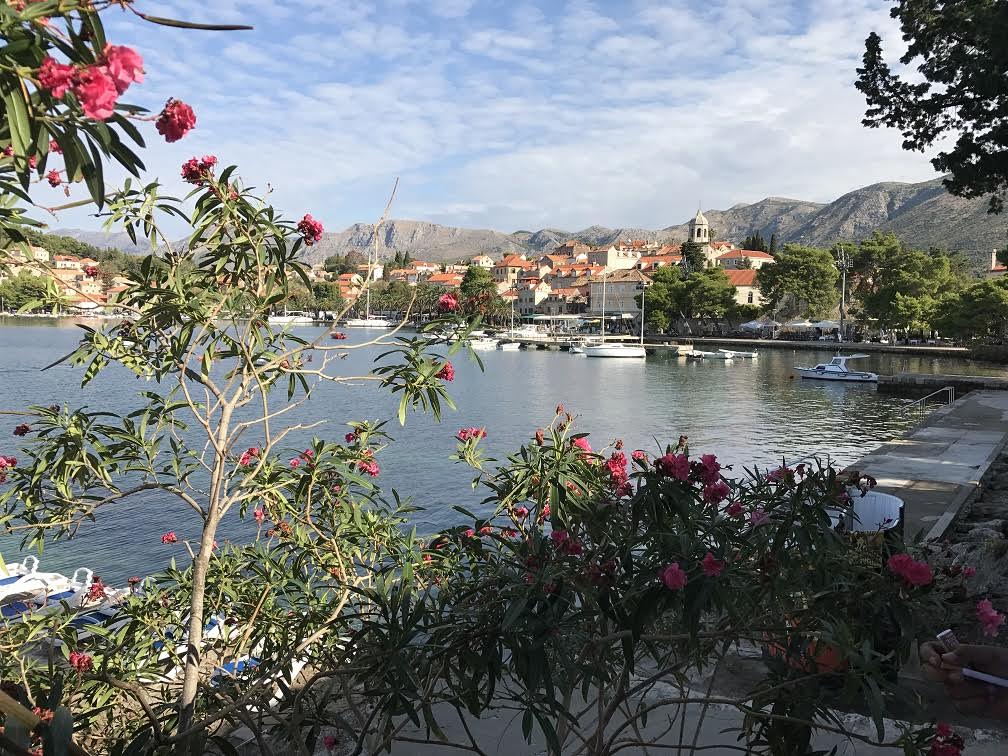
(Cavtat)
4. I am sure you have witnessed some amazing connections of people with their past on these tours. Any particular favourite stories and memories?
We have dozens of touching stories, having help connect people with long-forgotten family in Croatia.
A good example of the emotion of our tour group can be found in this Andrew Norris (a transplant from the UK), who lives much of the year in Gornje Bukovlje. This video is from our visit to Gornje Bukovlje in 2012.
One of my all-time favorites was a few years ago when we had a lady in our group, whom I had helped find her ancestral village of Jazevica. My Zagreb friend, Dejan Perhat, had located her family. On our way back from Osijek, we received a call from Dejan telling us her family invited the entire group to stop at their home in Jazevica. What an experience, they laid out their best sunka, kobasica, sir, kruh, kolache and of course a never-ending supply of various Croatian liqueurs in an outdoor pavilion. There was not a dry eye that day. Even those who had not planned a visit to their ancestral villages were inspired to do so.
I would be remiss to not mention others in Croatia who have helped: Sanja Frigan-Cihua, Lidija Sambunjak, my dear departed from Miro Caic, Zoran Stupar, Alen Miocevic (our guide since 2005) and our friends from Hrvatska Matica Mirjana Piskulic, Branka Bezic-Filipovic and Hrvoje Salopek.
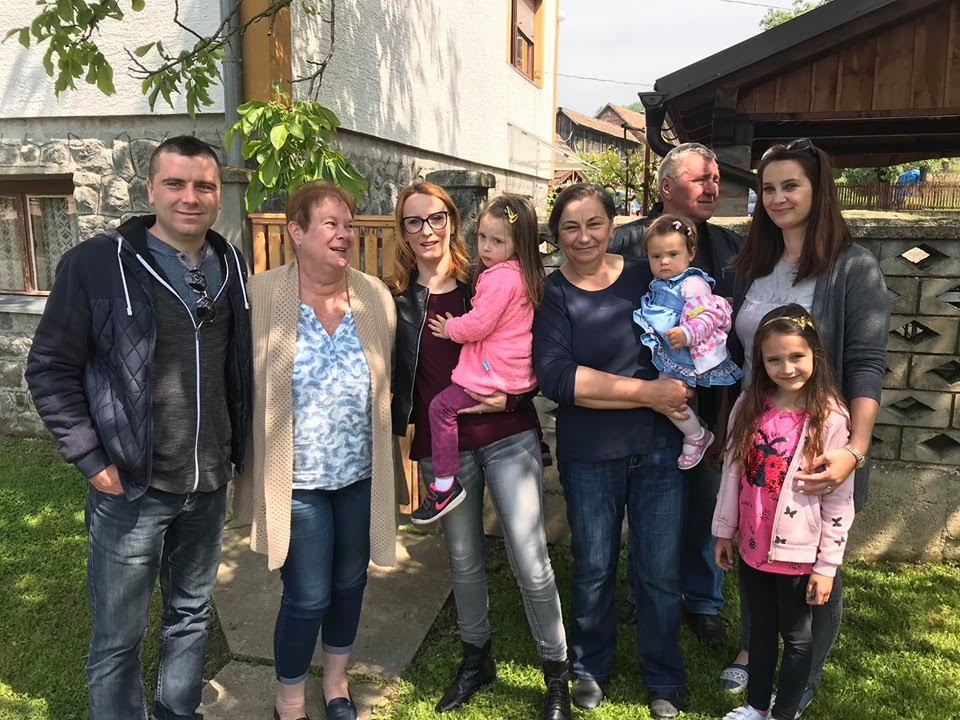
(Ancestral visit to Jazevica)
5. You have performed great work helping people trace their Croatian roots online as well. What are the most common enquiries and requests for help?
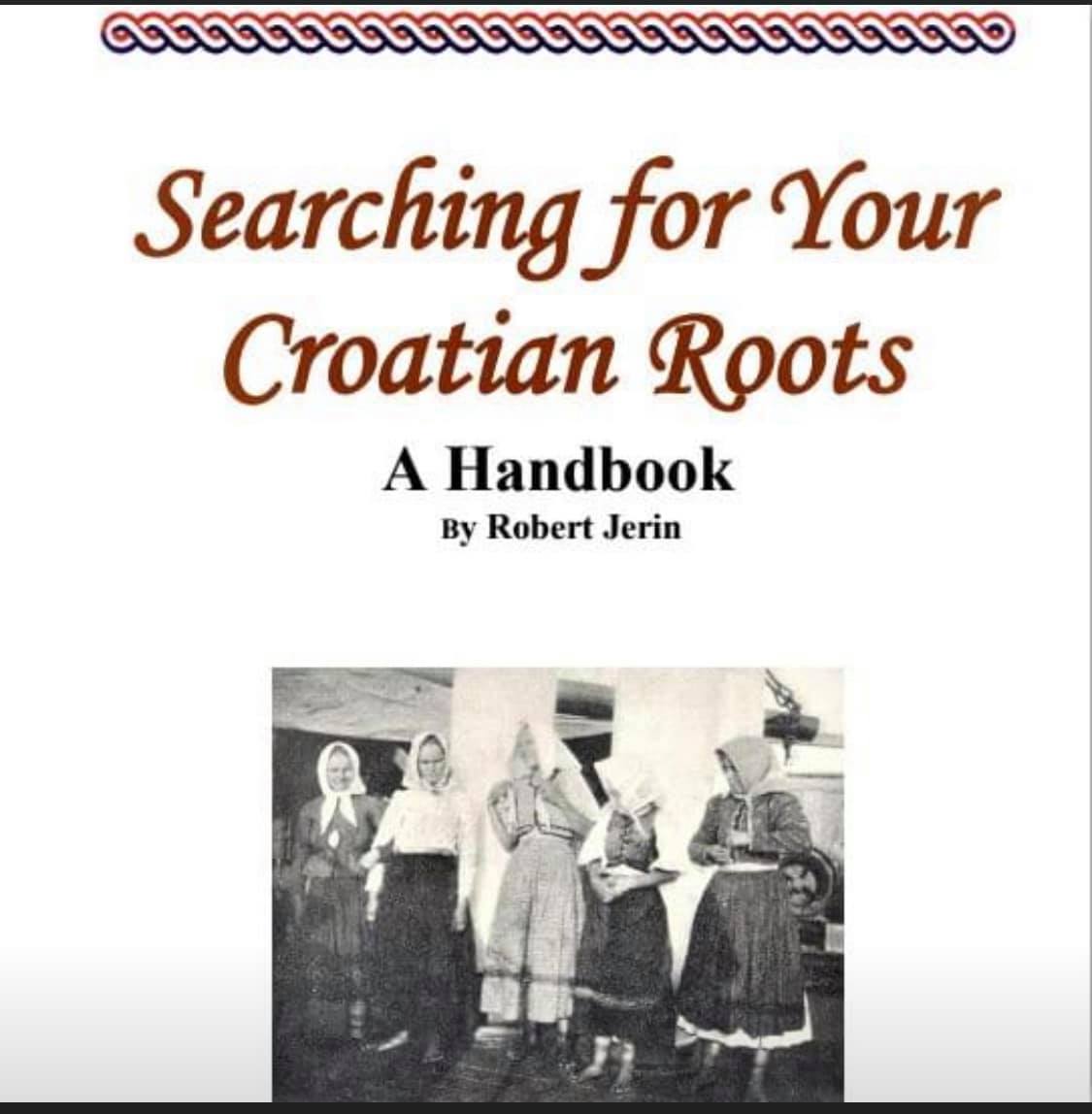
Many people begin by simply asking about a surname, little do they realize the surname may be quite common in Croatia. After some prodding they come up with more details. In most cases we have a high degree of success, even though they may only know the Anglicized surname. Funny that many people say their ancestors came from Zagreb. But in fact Zagreb was a well-off city that offered employment, thus very, very few left that city for America in the early 20th Century. Most came from small villages seeking to make money in America in hopes to return home and buy land. Perhaps 25% or less actually fulfilled that goal as most found a new life in America. I always tell people they need to work backwards from themselves, parents, grandparents in order to establish a town or village of origin in Croatia.
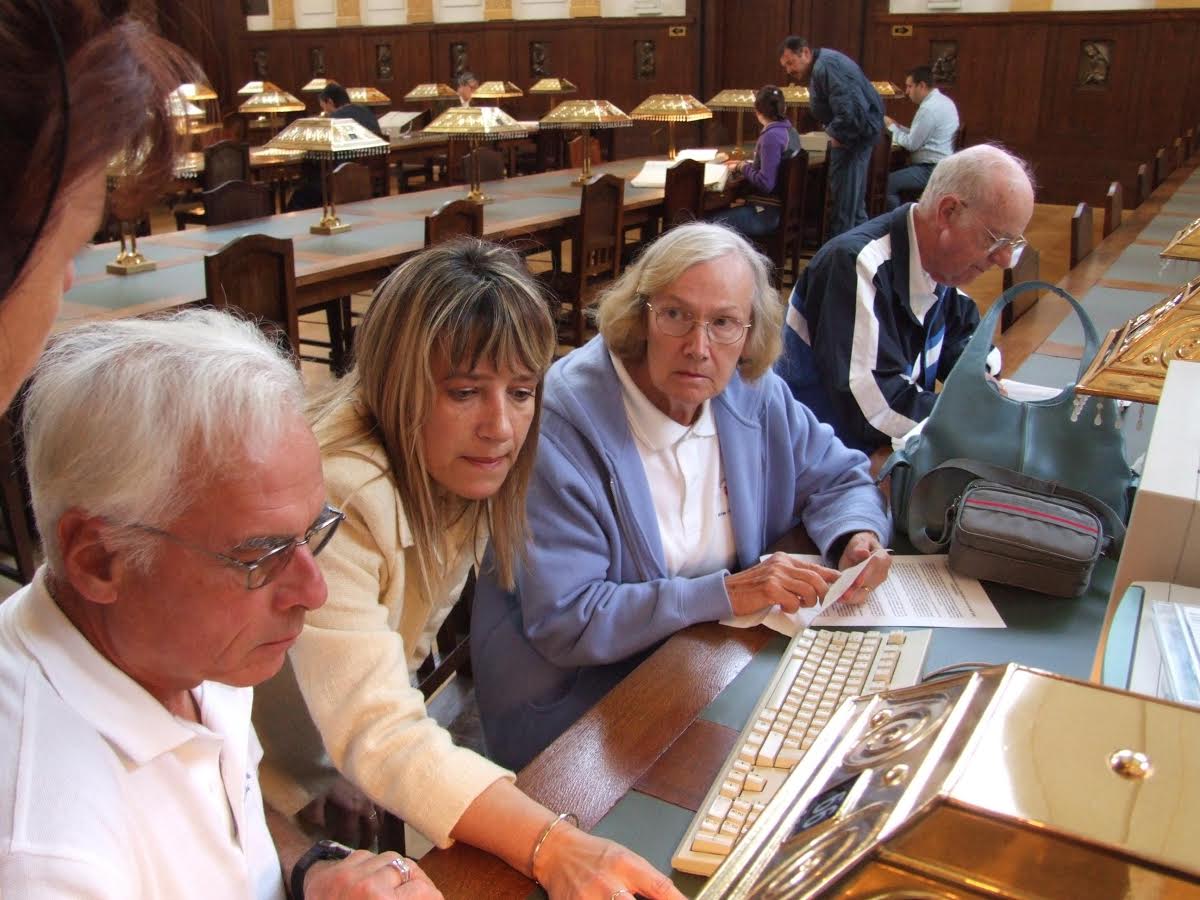
(Heritage research at Zagreb State Archives)
6. Tell us about moderating the Facebook group. Anything that focuses on the past in Croatian is almost always contentious, but you manage to keep things very civil.
This is sometimes a challenge but most of the people in our group are very kind and helpful. While I certainly can discuss politics I have banned political discussion from the group. Everyone now and then we have someone object, but the rules are clearly stated in the welcome to the group. It is not always easy, having been called a censor (yes, I am sometimes), a communist, a fascist among other unmentionable names. But when I part company with members who do not agree with the purpose of our group, I always try to leave them on a good note.
I am surprised how even some Croatian born people are not as well versed in their history as one would imagine…. But again our group is to share such knowledge.
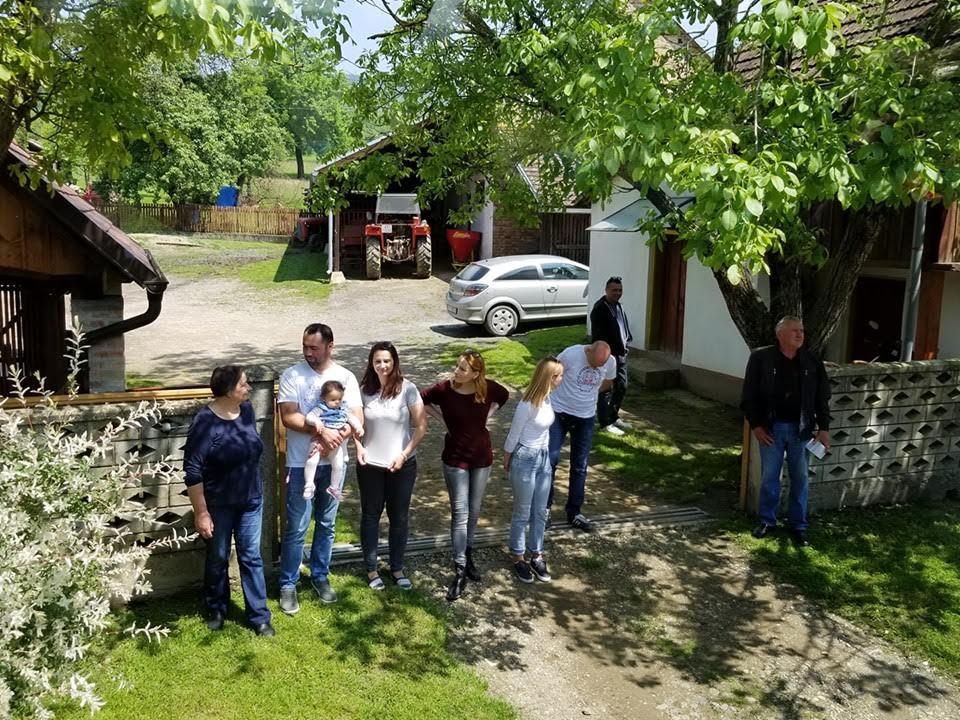
7. How closely do you follow daily events in Croatia, and how do you view Croatia today from your perspective in the States?
I get a Google News Feed every day of Croatian news, including Total Croatia News. And I Skype every week with my friend and guide in Rijeka, Alen Miocevic. So I follow the news and events somewhat closely.
I view Croatia as a place of great possibilities which may be a bit stymied by negative attitudes of some and a bureaucracy which has a long history in Croatia dating back to the days of the Austro-Hungarian Empire. But I view Croatia as a place that is improving and trying to find its place among the larger countries of the world. As I am wont to say, korak po korak (step by step).
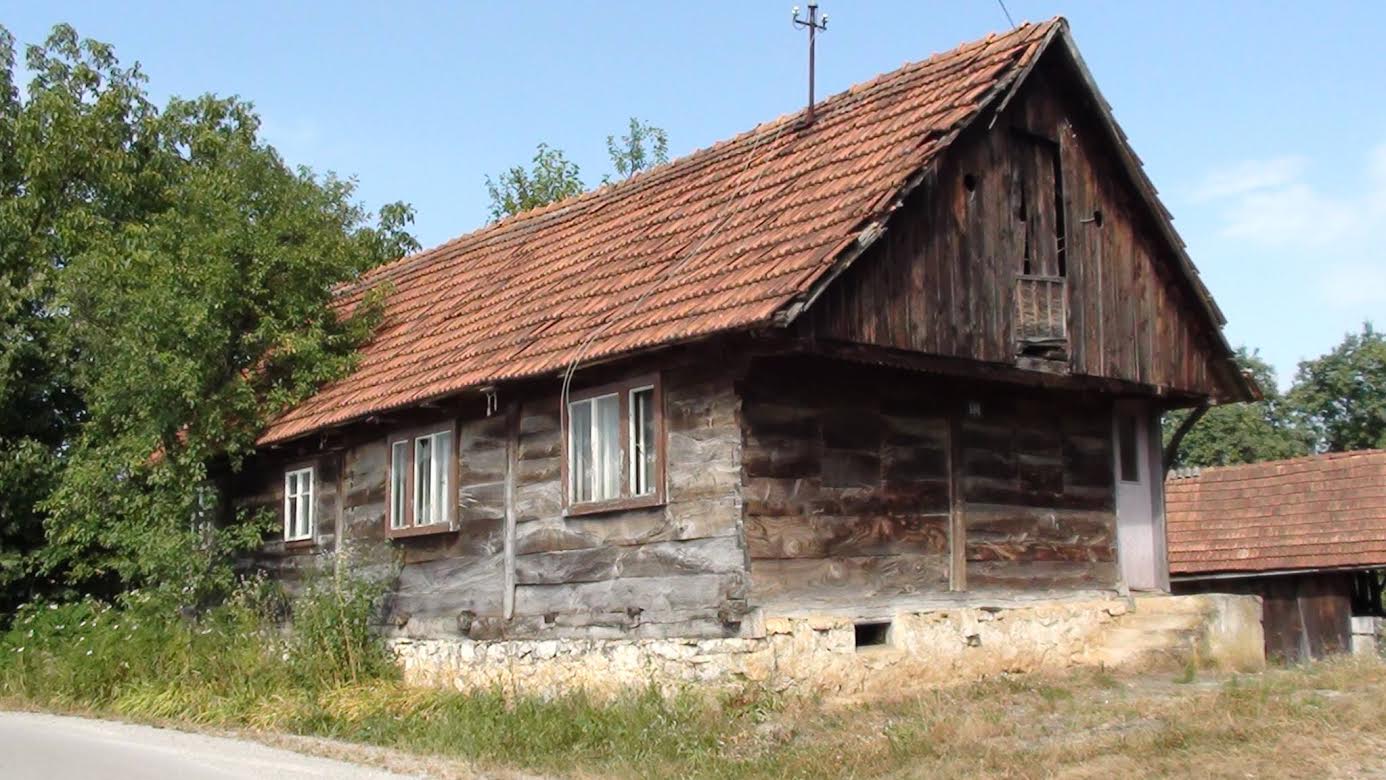
8. And finally, favourite place in Croatia, and why?
Oh my this is an unfair question. We have many favorite places in Croatia, but always feel like we are coming home when we visit Gornje Bukovlje. While I enjoy the famous places, I love visiting places off the beaten path. we get to visit many ancestral and interesting places off the beaten path. Sosice in Zumerak, land of the Uskoks, Delnice frog museum, Lokve, Mrkopalj, Lič and Prigorje. These were surprise stops for people whose ancestors were born there. All these places have some significant place in Croatian history but are largely bypassed by tour groups. Occasionally we will surprise the group with a roadside picnic where we enjoy sampling Croatian food and drink One of my favorite things is to get up before the tour group and take walks. I am amazed at some of the places I find and wonder why tour guides don’t take us to those places, but I guess they like taking groups to Lotroscak Tower at noon for the firing of the cannon.
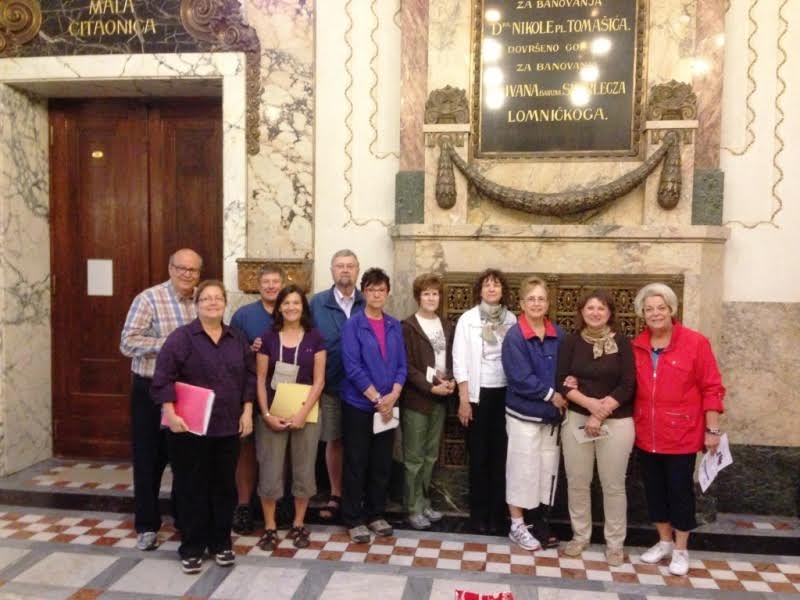
You can follow the excellent Croatian Heritage and Genealogy Facebook group here.
And if you are interested in joining one of the 2021 heritage tours to discover your Croatian roots, here are the links to the groups in July and in September.
For more from the Croatian diaspora, follow the dedicated TCN section.

